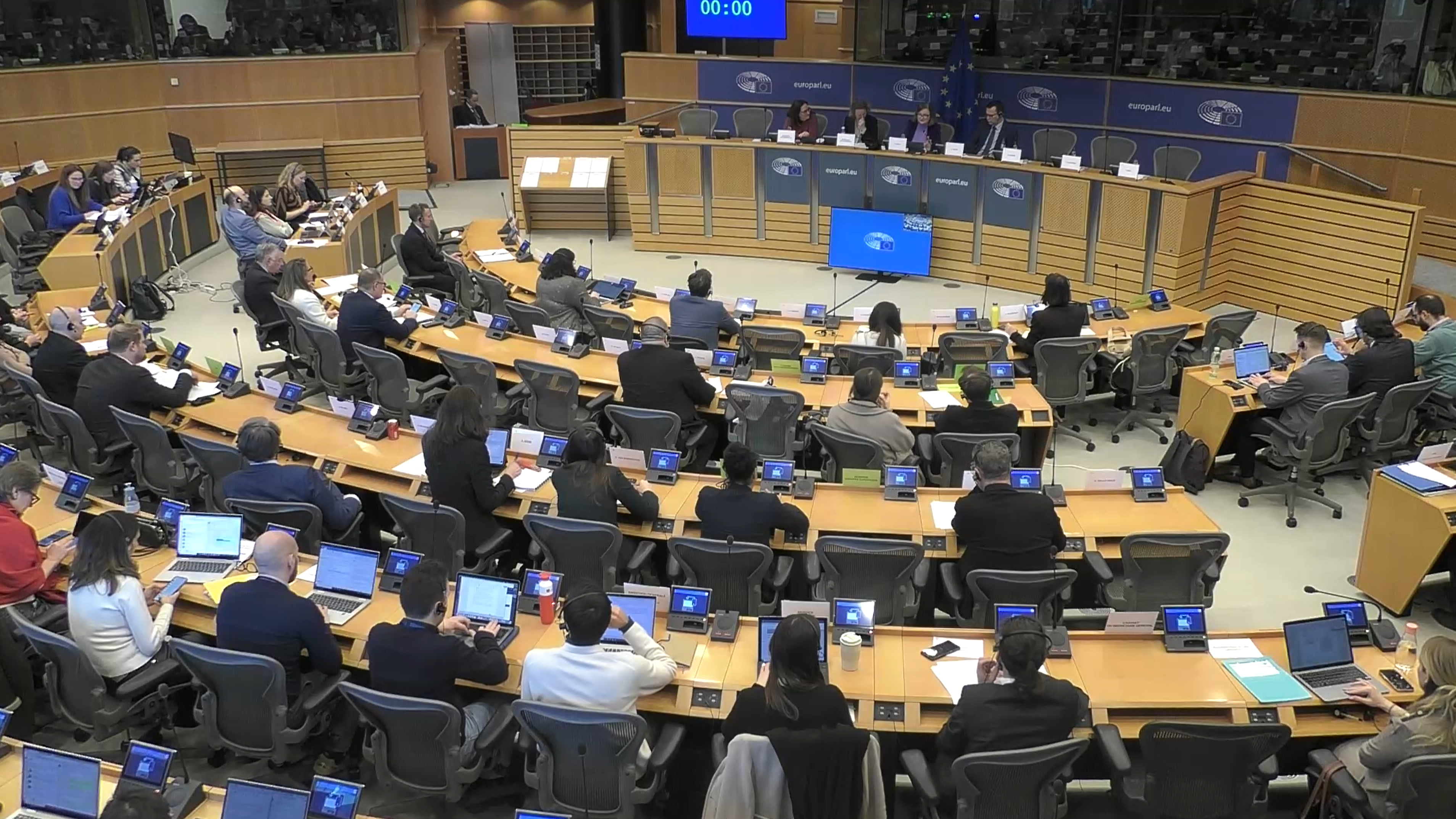
The new ‘Democracy Shield’ initiative—presented as protecting European elections from foreign interference—turned into a heated debate at its very first monthly meeting. Monday, February 17th saw some participants go off-topic by querying whether interference is exclusive to Russia or if other actors, such as Brussels or the United States, should also be considered.
The central topic for the first meeting was the recent elections in Romania, about which two external companies were invited to produce reports: Viginum from France and Expert Forum from Romania.
The first, led by Marc-Antoine Brillant, claims to be “a collective of specialists selected for their experience in digital research and analysis (OSINT), digital marketing, data science, political science, and geopolitics” under the General Secretariat for Defense and National Security of France. That said, its impartiality could be questionable.
The second, led by Madalina Voinea, pointed out that candidate Călin Georgescu had significant social media activity and may have received a boost in engagement from abroad. Still, her team did not allege direct interference in the Romanian electoral system. As one expert noted
Georgescu did not just appear out of nowhere; he traveled across the country, meeting people. He comes from within the system, gave speeches nationwide, and engaged with various communities. He has a kind of Christian social mission, like a romantic healer, a bubble that formed around him and was leveraged on TikTok. Was this taken advantage of? Maybe, but it was something that already existed.
From the conservative and sovereigntist wing of the European Parliament (EP), the ‘Democracy Shield’ was denounced as yet another attempt by Brussels to intervene in the sovereignty of member states, this time by imposing control over elections under the pretext of combating disinformation. French MEP Virginie Joron (Patriots for Europe) questioned how a mere opinion posted on social media can be considered “foreign interference” while traditional media have absolute freedom to influence the electorate.
Even the technical experts responsible for implementing the EP’s strategy doubted its feasibility. Klaus Müller, from the German Federal Network Agency, admitted that they are still in a “learning phase” and cannot yet share concrete lessons because the system is still under development.
One of the biggest criticisms was aimed at the European Union’s evident double standards. While digital platforms are forced to delete accounts and modify algorithms to limit the impact of certain opinions, media outlets aligned with the political establishment operate without restrictions. As Joron pointed out during the session: “To what extent can we say that an influencer’s message alters the outcome of an election?” Joron asked. “Would we say the same about Taylor Swift? If the newspaper Libération calls for a vote for Macron, would we conclude that it is responsible for his victory? Should we have annulled the French elections?” Silence followed.
MEP Fidias Panayiotou also questioned “other types of interference,” like that of the United States through USAID: “In my country, Cyprus, in 2004, through USAID, the U.S. spent $60 million on the referendum for reunification.”
For the European Commission, Marie-Helene Boulanger, head of the Democracy Unit at the Directorate-General for Justice, clarified that elections in the member states must be conducted according to “regulations approved by us” (referring to what has been approved for all EU member states). Germany, which will hold elections on Sunday, February 23rd, is already under a “rapid response system” that forces digital platforms to immediately react to information that Brussels deems “problematic.”
The creation of a new European intelligence agency, proposed by Swedish MEP Tomas Tobé (European People’s Party), could take the centralization of electoral control in the hands of EU institutions even further, leaving member states with little room to decide how to manage their own democratic processes.
